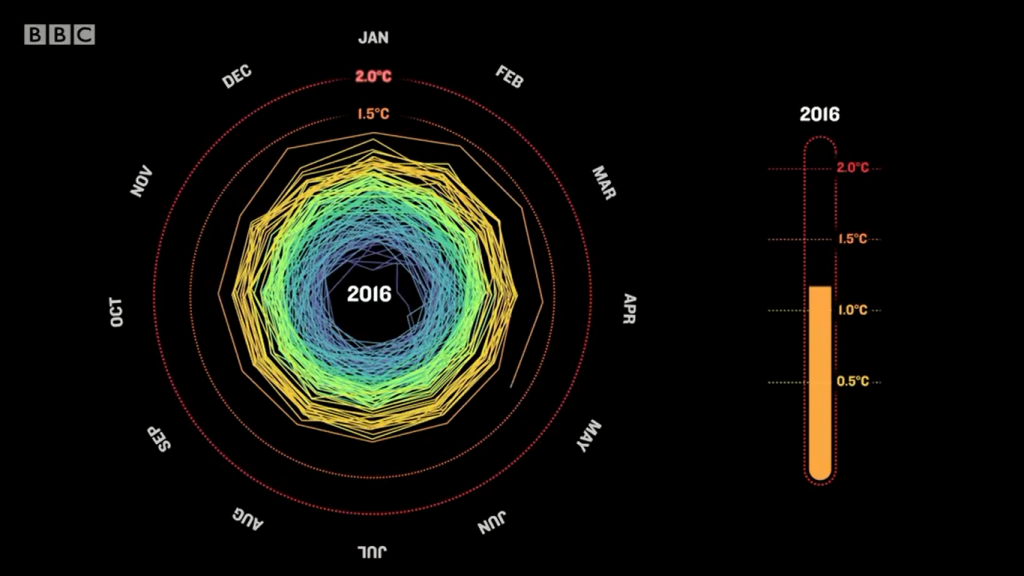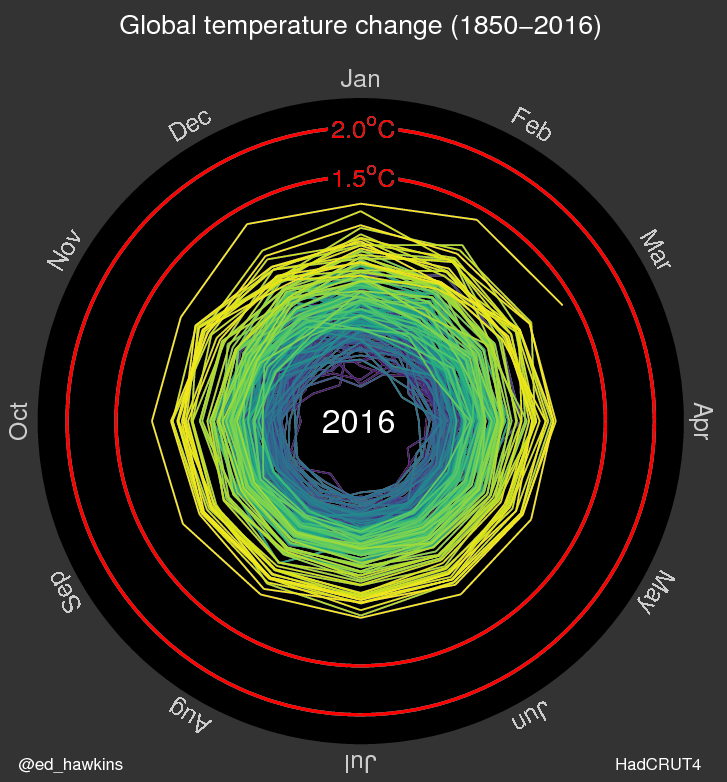
If you watched the opening ceremony of the Olympics, you would have noticed a segment discussing climate change, accompanied by graphics of CO2 emissions, Arctic sea ice melting, sea level rise and a somewhat familiar spiral representation of rising global temperatures (above), a version of which you may have seen somewhere before.
Needless to say, I was rather shocked while watching!
